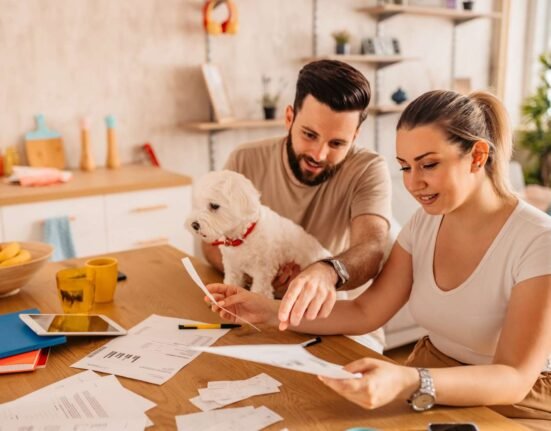This week’s must-reads:
- Scared of sharks? Take our quiz for, uh, reassurance.
- Why heat leads to headaches — and how to avoid them
- What to know about 6 popular home tests for allergies, cancer and more
- Doctors couldn’t figure out my chest pain. It took years to find the answer.
- What to know about an aggressive tick species spreading across the U.S.
You’re holding your phone wrong
When people warn about the dangers of screen time, they are usually thinking about its impact on mental health or interpersonal relationships, writes our technology reporter Heather Kelly.
What about the physical issues that come with clasping a metal rectangle in your hand for hours at a time? Or holding it close to your face so you can clearly make out your poorly lit streaming TV shows? There are so many ways a phone can affect your health, beyond toxic content, that smartphone makers are building in tools to help counteract it. Before you get carpal tunnel syndrome, a case of eyestrain or another migraine, try some small changes.
We’ve got tips for protecting your hands, eyes, ears, heart and brain.
Feeling envious? Here’s how to cope.
Envy is an uncomfortable emotion. Our On Your Mind columnist Juli Fraga writes about a former patient who envied her brother’s successful career. While she was working hard to pay the bills, he was vacationing around the world. “I’m such a terrible person for feeling this way,” she said. “Why can’t I feel happy for my brother?”
Fraga reassured her that envy isn’t a character flaw. Like all emotions, it’s something to notice and validate.
But in extreme cases, this emotion can turn malicious, causing us to bad-mouth the envied person or devalue their success. If you’ve ever felt this way, you probably know that envy doesn’t discriminate. It can make us harbor ill feelings toward even people we love and care about.
However, envy doesn’t need to hinder us or our relationships. Fraga offers six simple tips to help you cope with envious feelings.
Why you might need to keep a bladder diary
This week, the Well+Being live chat focused on sleep. A lot of people are losing sleep because they have to pee multiple times a night. I checked in with Marisa Clifton, associate professor of urology at the Brady Urological Institute at Johns Hopkins Medicine.
Clifton notes that it’s common as people age to get up one or two times a night to pee. You can minimize bathroom trips by reducing water intake before bed, but that doesn’t always solve the problem. For patients struggling with excessive nighttime urination, she advises keeping a bladder diary. The National Institutes of Health and other organizations offer bladder diaries online. “They record how much they take in, how much they are urinating out and the times that it’s happening,” Clifton said. “That can be helpful for patients to identify issues and for doctors to help them.”
Something Clifton shared really surprised me. She noted that often nighttime wakings to pee aren’t really about the need to urinate at all. Keeping a bladder diary and working with a physician may reveal another underlying problem — such as a sleep disorder, sleep apnea, chronic pain, conditions that cause fluid retention or anxiety.
The underlying condition is what wakes you up — but once you’re awake, you’re conditioned to go pee anyway. That’s why a bladder diary and working with a physician is so important. Don’t assume it’s just a pee problem.
Chronic pain can be treated. Obstructive sleep apnea actually puts a strain on the heart, which causes the release of a cardiac hormone that causes you to make more urine, Clifton said. For these people, treating the apnea might solve the pee problem. One sign that there may be another underlying condition that is waking you up is how much you pee. If you’re peeing very small volumes every time you get up to go to the bathroom, that suggests it’s not the urge to urinate that’s waking you up, Clifton said.
Keep reading for more answers to your sleep questions. And next Thursday, we will be talking about your pets. Send me your questions here.
How can I keep my energy up as I age?
As I grow older, I feel like I’m more often tired and needing more naps. How can I keep my energy up?
Feeling constantly exhausted is not normal, regardless of your age. It’s a myth that as we age, fatigue becomes par for the course, though it is a common symptom: One study found that 29 percent of 70-year-olds and 68 percent of 85-year-olds experienced fatigue. In one study, among older adults, low energy was more often cited as the reason it’s hard to get out of bed than even chronic joint or back pain.
Keep reading for the latest advice on how to boost your energy as you age. Our columnist is Trisha S. Pasricha, an instructor in medicine at Harvard Medical School.
Find your joy snack!
Here are a few things that brought us joy this week.
- Enjoy some of this week’s best photographs from The Washington Post. Our favorite: A sheep crowned reserve champion in its class.
- It’s too darn hot. Only ice cream floats make it bearable.
- Butterflies at wedding moved bride to tears. Soon strangers were weeping too.
- He makes giant trolls out of trash, hides them in woods for people to find
- She manages the opera’s costumes — and has excellent laundry tips
Want to know more about “joy” snacks? Our Brain Matters columnist Richard Sima explains. You can also read this story as a comic.
Please let us know how we are doing. Email me at wellbeing@washpost.com. You can also find us on TikTok.







